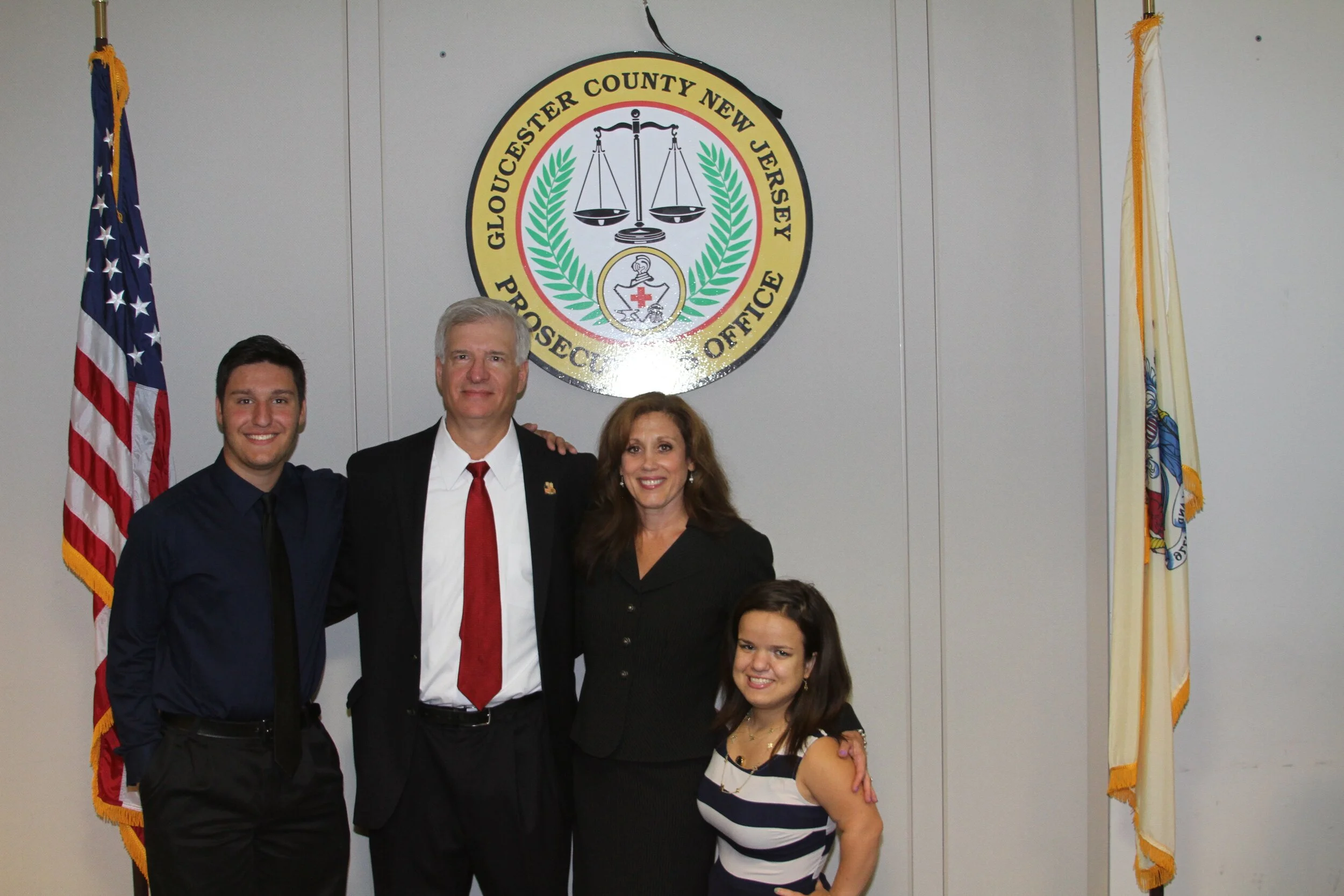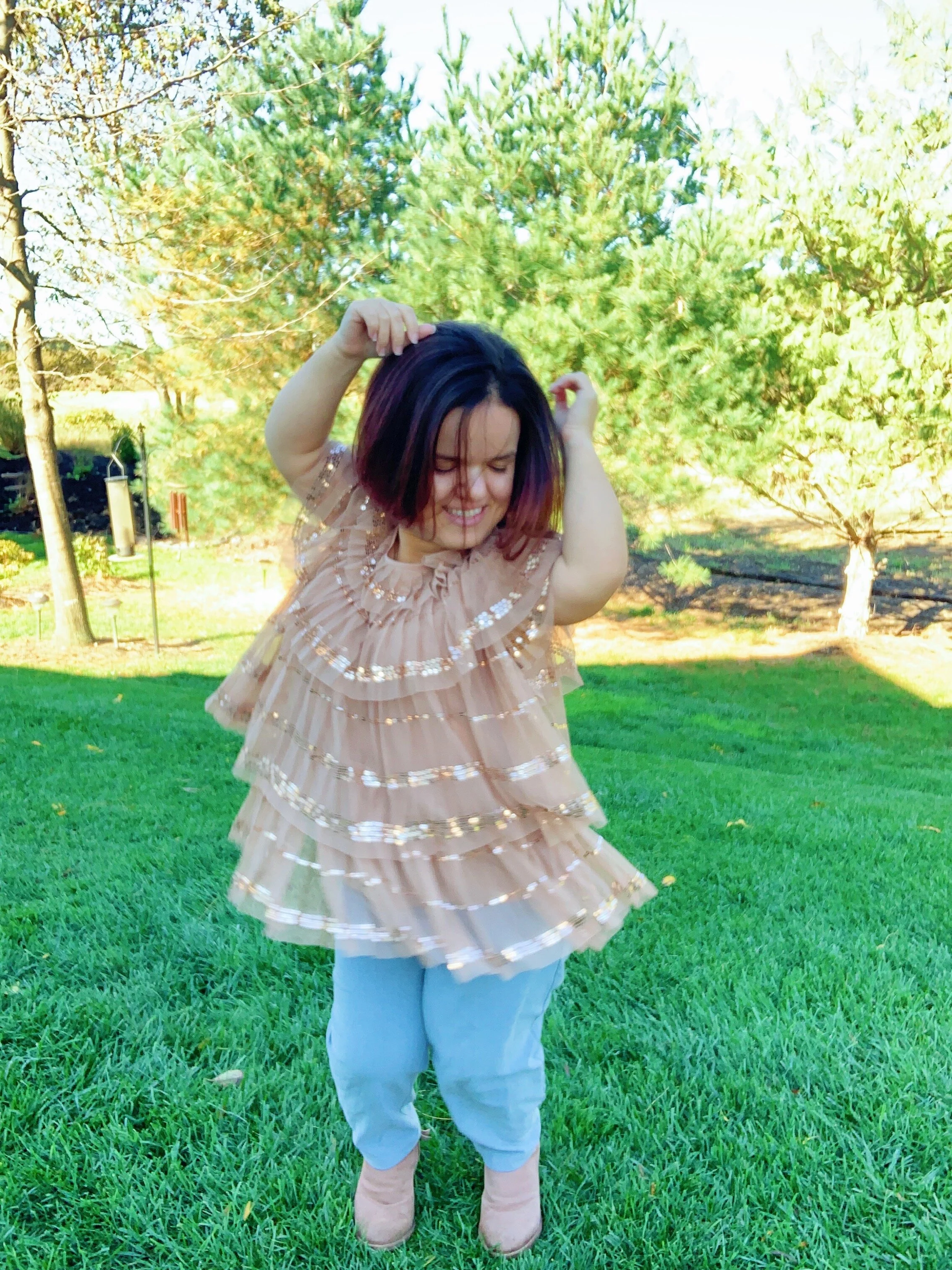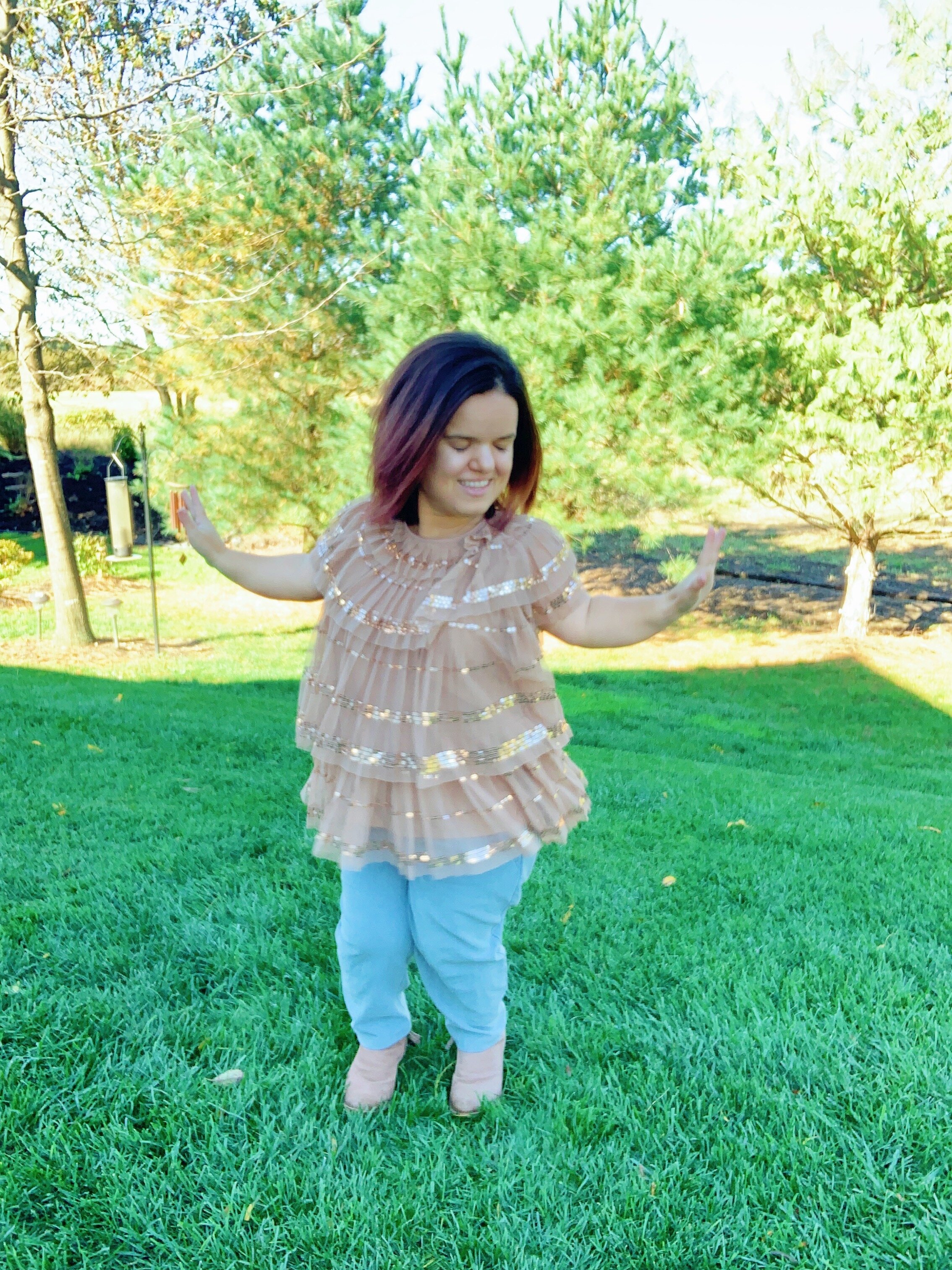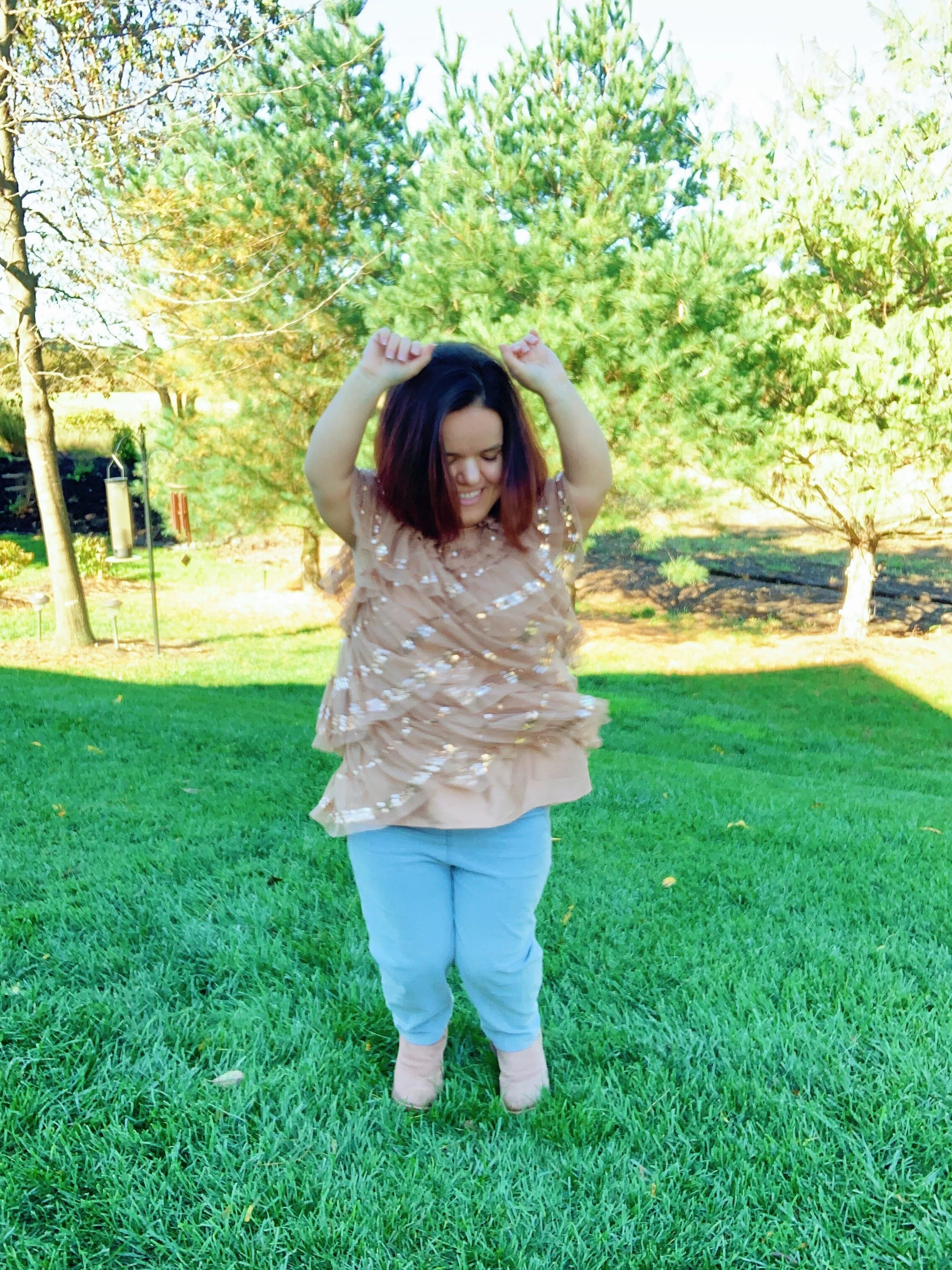Answering Your Questions

There is a famous proverb, “Better to ask a question than to remain ignorant.” Keeping that in mind, in the spirit of dwarfism awareness month, I reached out to my friends and family (aka the people who know me best) and invited them to ask at least one question they’ve always wanted answered. No question was off-limits and no question could remain unanswered.
Are you ready? Let’s go!
Is there a family history of little people in your family?
No. According to everyone I’ve asked, I am the first little person in the family on both sides. That is not uncommon. In fact, 80% of little people are born to average-sized parents.
When are the times during your average week when you are most/least aware of being a little person?
I’m most aware that I’m a little person in social settings, from being out and about with friends to running errands. It is when conversations take place above me or what I want is on too high a shelf that I realize that I’m not like everyone else, that I am different.
I’m least aware of being a little person when I’m surrounded by friends and family who just get it. They include me in conversations, making direct eye contact. They help me reach something with no questions asked.
When I’m treated like a normal person, I feel like a normal person and vice versa.
What are things your extended family and friends can do to make your life easier/better in any way?
Slow down and don’t talk above me. I think because my friends and family are so familiar with me, they forget that I’m a little person (they just see me) and will often walk ahead without looking back.
What is the most surprising workaround you've come up with to navigate an average-sized world?
When I was a little girl my parents made several adaptations around the house. We bought stools of varying heights, put sticks in my bedroom light switches so I could reach. But, the most surprising and, in my opinion, most impressive workaround we’ve come up with to navigate an average-sized world is...the sideways sink. When you walk into a normal bathroom, the faucet is in the back. Having shorter arms, obviously I couldn’t reach. So, my parents had someone come and literally turn my sink sideways so that the faucet was closer to me. Apparently, when asked to turn the sink sideways, the plumber refused because he thought doing so would ruin his reputation. He thought people would ask, “Who was the idiot who turned this sink sideways?”. Little did he know how wrong he was (pun intended).
What is a hidden benefit of being little?
For me, a hidden benefit of being little is the community it has provided me. LPA has taken me to Orlando, Detroit, Brooklyn, Nashville, D.C., Boston, San Francisco and has introduced me to some of my closest friends in the entire world. When we get together, whether for a week or weekend, it is non-stop fun and laughter. We play sports, explore our host city, there are dances every night, and no one stares.
How much would estimate you have spent on clothing alterations at this point in your life?
The best number I can come up with is a lot. A lot. A lot, a lot, a lot. Think about it...25 years of alterations adds up pretty quickly, especially because most alterations are more than just a simple hem. When I danced, despite having my measurements taken, my seamstress would have to essentially deconstruct and then reconstruct the entire costume. I don’t even remember how we found/made pants for me to wear when I played softball. Long-sleeves shirts were sometimes too long and, if they had a cuff or special detailing, that required extra work. Outfits for special occasions such as bar/bat mitzvah, weddings, and proms always, always required more time, care and, inevitably, money.
For fun, I asked my mom the same question and she gave me a look and said “I don’t even want to go there.”
Why haven't you learned how to hem or make alterations???? Wouldn't that save $$$$$/ you could make your own patterns and sew your style and make a brand for others
I tried to learn how to sew, it didn’t go well. During my junior year of high school I enrolled in an intro to sewing course. Everything went well until we had to make our first pattern. After much frustration and many tears, I wound up dropping the course.
I do want to learn how to sew. I always say that I have the designs in my head, I just lack the technical ability to pull it off.
How is applying and starting at new jobs different? At what point do you choose to disclose, if at all, that you’re little? How do employers treat and accommodate you? And also is there anything in particular that is challenging in the business world as an LP that most people wouldn’t think of?
I always go back and forth whether or not to disclose that I’m a little person when applying for a job. For a long time there was nothing on my cover letter or resume that indicated I was a little person. When prompted to disclose whether or not I had a disability, I would always choose “I choose not to disclose”. I was convinced that employers would never consider me if they knew I was a little person before learning what I was capable of. It wasn’t until I began applying for internships during my junior year in college that I started letting potential employers know that I was a little person. Now, I feel like it depends on the job I’m applying for. I will say that, regardless of whether I disclose my disability on my application, the last question I ask my potential employers is “Do you have any questions regarding my dwarfism?” It is my way of confronting their doubts face-to-face.
Everyone I’ve worked for, including my present employer, has always been accommodating with my disability. At my current job, one of my first assignments was to tell my boss what stool I needed in order to reach the cabinets. Whether working in sports or the entertainment industry, I’ve been lucky enough to have always been treated like “one of the guys”. That doesn’t happen right away, but it does happen.
Do you feel immediately judged when going on an interview?
Yes. I know that as soon as I walk into any job setting for an interview the first thing that anyone will notice is that I’m a little person. They see my disability and immediately start asking questions and making assumptions (in their heads, of course, never out loud).
When going on a first date, do you have different expectations when going out with an LP (little person) vs. AP (average-sized person)?
Yes. When going on a first date with an AP, due to past experiences, I’m more wary of their intentions. I don’t want to be a check off someone’s bucket list.
If you are going on a date with somebody, whether of average stature or not, do you feel like you should let them know in advance that you’re a dwarf?
Much like with applying for a job, I go back and forth with this. Regardless of whether I’m going on a date with an average-sized person or a little person, I do let them know that I’m a dwarf. The real question is when. I go through phases where I’ll edit the photos on my dating profile where you can’t tell that I’m little and then other times I’ll include photos where you can clearly tell that I’m different.
In every professional or personal setting, I want to be given a fair chance. Unfortunately, past experiences have led me to believe that won’t happen if people know in advance that I’m different. But, at the same time, I’m proud of being a little person and don’t consider myself truly disabled and feel wrong trying to hide it for someone else.
When dating do you prefer average size guys or little people guys and why?
I don’t have a preference. My first boyfriend was an average-sized person, my most recent was a little person. I don’t want to be discriminated against because of my height and refuse to discriminate against guys for theirs.
How does intimacy work with an average-sized person?
Every situation is different. It’s all about finding out what is most comfortable and pleasurable for both parties involved.
When working out do you find it hard/challenging to modify workouts to your body?
Sometimes, it depends on the workouts. I love finding new, exciting, challenging workouts to try and find motivation when people say “You can’t/shouldn’t do that”. I think my biggest struggle in the gym is that there always equipment that is too high and no one there to help me reach it.
Despite the struggles, to me, the gym is the one place where I can defy not just everyone else’s expectations, but my own as well. There is no greater feeling than finding out you actually can do something, no greater excitement than when you set a PR.
It goes to show that the body is an incredible machine, no matter how tall it is.
What is the best advice you would give someone? What is the best advice you've ever received?
When asked this question, my answer is always two-fold. The first is to embrace what makes you different. Growing up, and even now, I felt that society discriminated against me because I was different. But I wouldn’t be who I am if I wasn’t a little person. There is only one you in the world, be proud of who you are.
The second piece of wisdom I always impart is never be afraid to ask questions. Knowledge is the most effective way to combat ignorance and no question is too simple or stupid. Albert Einstein said it best, “Once you stop learning, you stop dying.”
The best advice I ever received came from my mom: Be a vault. Once earned, trust can easily be broken. You want to be that person people can turn to, knowing you will listen and that what they say won’t be repeated.
How has being a little person empowered you?
Being a little person has empowered me to be an advocate. In elementary school, I watched as my mom argued on my behalf, ensuring my 504 was followed while, at the same time, making sure my teachers and classmates treated me just like everybody else. By the time I got to middle school, realizing I could be easily overlooked (literally and figuratively), I found my voice and have been using it ever since in school, at work, on social media and, most recently, on this blog.
What is one change you would like to see made in society to make life more accessible for little people?
I would love to see designers start designing adaptive and accessible clothing for little people. Second, I would like for society to realize that it is not a burden to make public accommodations accessible. Little people and people with disabilities are not asking for special treatment, we are asking for respect.
I must admit, when coming up for this post I was nervous. I worried that no one would ask a question or a question would come along that I wouldn’t be able to answer. I was pleasantly surprise at how everyone responded, sending in one insightful question after another. I hope this opens everyone’s eyes to what it’s really like to be a little person and empower them to ask questions, combat ignorance, and learn about the world and people around them.











